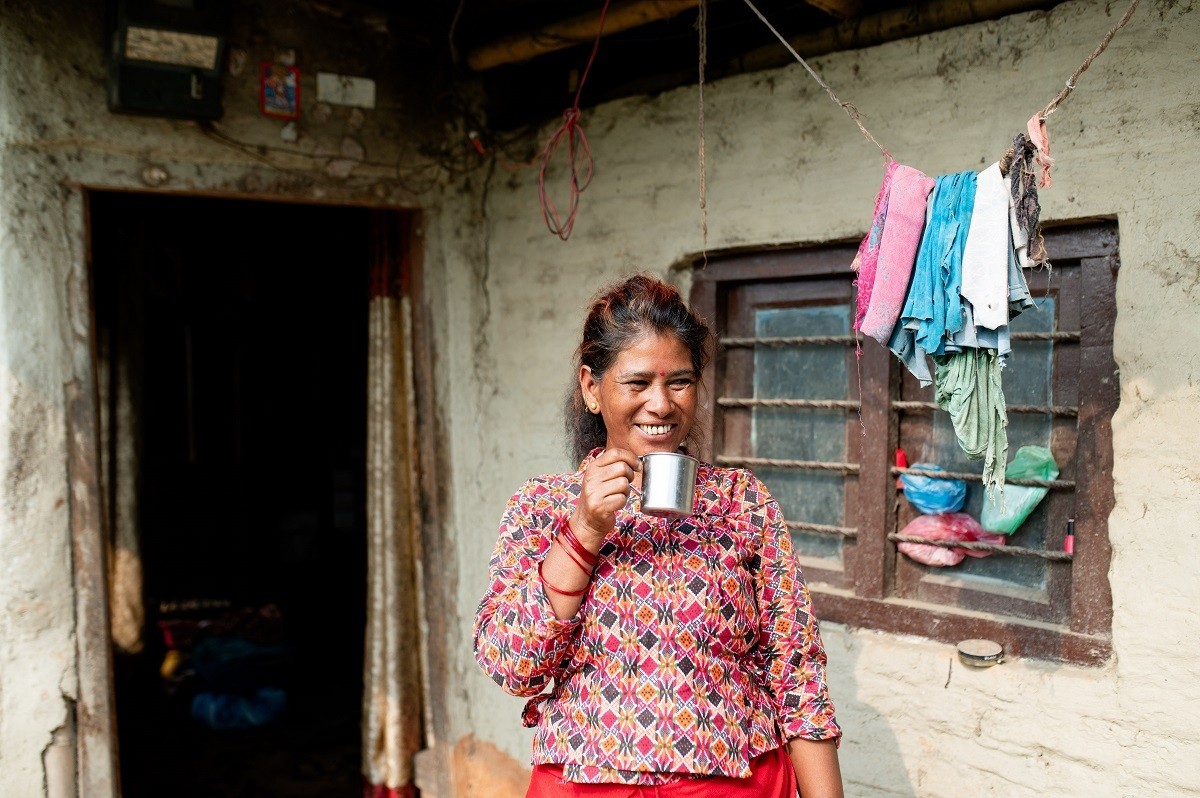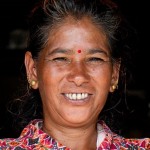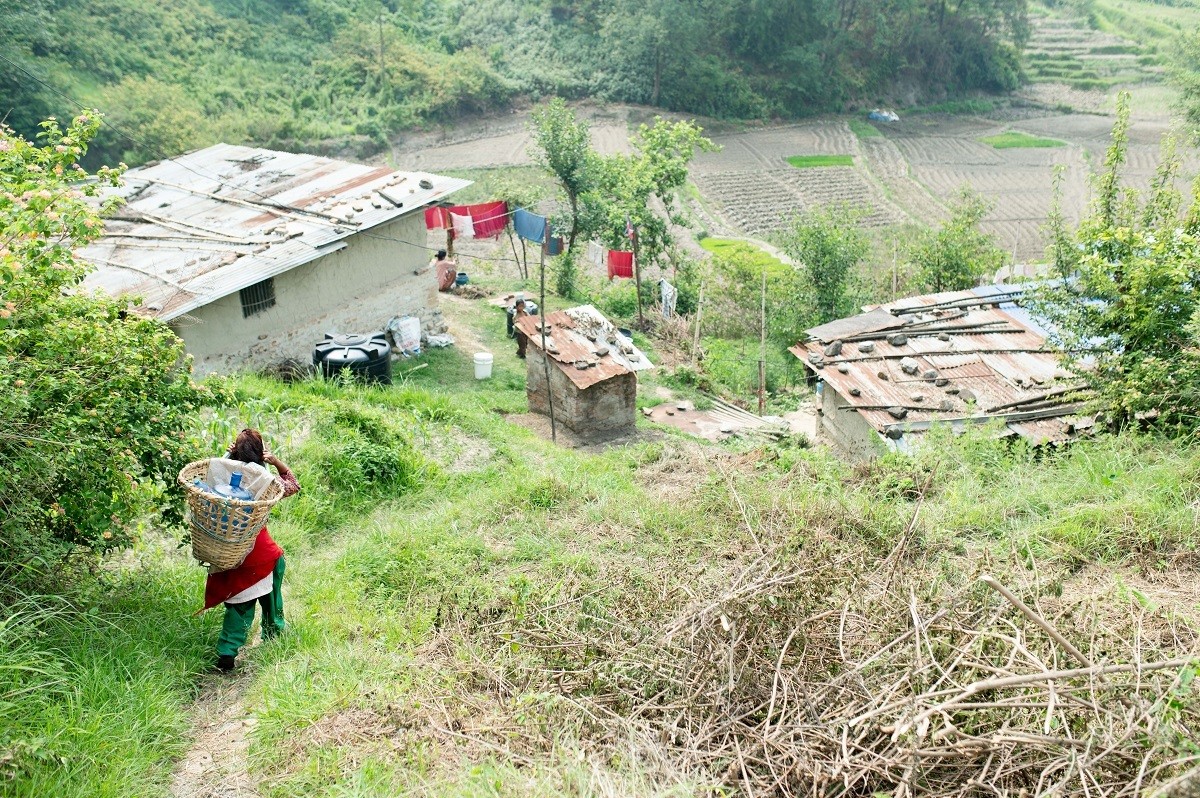No registration? No water. The story of Sita Tamang
Working in the fields in the heat of the day because in the morning you have to fetch water. And if you're unlucky, going to bed thirsty. Sita Tamang dreams of having her own water connection. But that is difficult when you are ‘Sukumbasi’.

Sita Tamang is 44 years old. She is a single mother and has two daughters and a son. Her youngest daughter and son live at home and are learning to become a seamstress and a painter. She herself works as a day labourer in the fields during sowing time and harvest time. As there is not always work, it is often difficult to make ends meet.
Sita Tamang has another problem. She is considered a 'Sukumbasi'. This word is often used in Nepal for landless migrants and means something like squatters. The word is often used as a swear word and many Sukumbasi face discrimination and exclusion.
‘Illegal’ resident
Even though Sita Tamang has lived all her life in a house on the outskirts of Changunarayan, she was not officially registered with the municipality. Because of that she has always had few rights as an 'illegal' resident without land rights in the municipality. 'My mother did have a registration card from the municipality and in her name we got an electricity connection for this house. But my mother is no longer alive,' says Sita. An application for a water connection years ago was unsuccessful.

'Sometimes I don't have enough time to fetch water and we are thirsty in the evening'
No water facilities
'Our family is originally from Sanku Desambar, but we have no land there either,' explains Sita's brother Santa Ram. He lives in a house next to Sita. Their parents migrated to Changunarayan in 1979. 'Based on my mother's registration, my sister recently managed to get a citizenship card. But we have no land rights here and no water facilities either. We have heard that migrants in the Chhaling area are given access to water, but here it is not talked about yet,' says Sita's brother.
For Sita Tamang, a water connection is a dream, just like registration papers for her children: 'We are happy to live here, but access to water is very important. Also for the next generation.' To get water, Sita collects rainwater during the monsoon. On other days, she depends on a spring near the river. Walking back and forth takes her an hour.
Expensive bottled water
'It is difficult, especially in the rainy season when it is slippery on the hills. As a result, I am late for work. Sometimes I don't have enough time to fetch water and we are thirsty in the evening. Sometimes we buy bottled water then, but it costs 50 rupees [35 cents; ed].' With water in the house, Sita would choose to start working in the fields as early as 6am so that she can rest during the hottest hours of the day, and then continue working.

Together with Dopper, Simavi started the Sarwacha programme in 2023 in the municipality of Changunarayan. The goal is equal and sustainable access to safe drinking water for all 60,000 residents. What is special about the programme is that it brings together local governments, the private sector and the community. And that people most affected by bad access and poor water quality, such as women and disadvantaged groups, participate in decision-making about water and sanitation.
Sita hopes that through the Sarwacha programme her issue will be raised with the municipality. ‘It is important that they know about our situation and hopefully they will listen to us.’
Projects
Sarwacha
Simavi and Dopper are working with local partners, ENPHO and Biruwa, to ensure a sustainable water supply for Changunarayan. Families in the fast-growing municipality Changunarayan in Nepal lack safe drinking water.
Water Justice Fund - grassroot grants to the water crisis
Millions of women and girls are hit hard by the water and sanitation problems caused by climate change. The Water Justice Fund supports local women groups in Kenya, Nepal, Bangladesh and Indonesia to realise locally-led and women-owned solutions to water and climate challenges.
WASH SDG
The goal of the WASH SDG programme was to sustainably improve access to, and use of, safe drinking water for at least 450,000 people, sanitation for at least 2 million people and improve the hygiene behaviours of 1.6 million people.


